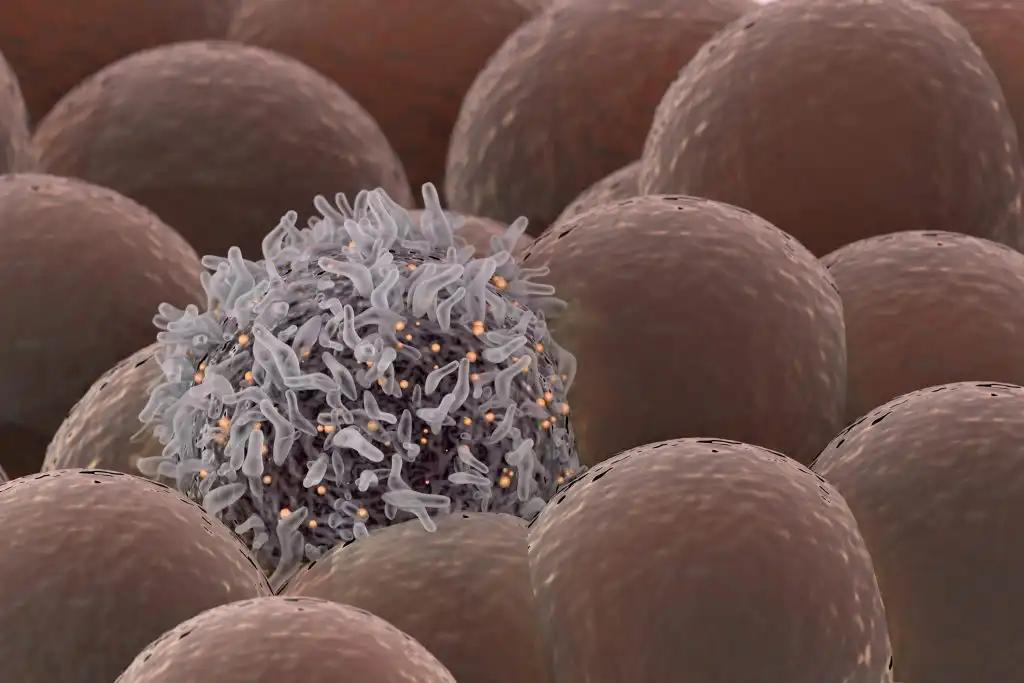KEY TAKEAWAYS
- This phase 3 CARTITUDE-4 study compared the CAR-T therapy ciltacabtagene autoleucel (cilta-cel) with the physician’s choice of SOC in len-refractory MM pts.
- The study’s primary endpoint was PFS.
- The study showed similar CAR transgene and cellular behavior as CARTITUDE-1.
The CARTITUDE-4 trial is an open-label, randomized study that compared the CAR-T therapy ciltacabtagene autoleucel (cilta-cel) against the physician’s choice of standard of care (SOC) for patients (pts) with lenalidomide (len)-refractory multiple myeloma (MM).
Eligible pts were lena-refractory and had undergone 1-3 previous lines of therapy. These include a proteasome inhibitor and an immunomodulatory drug. Additionally, pts had to have an ECOG performance status score of 1 or lower. Those assigned to the cilta-cel group underwent apheresis, followed by a physician-chosen pomalidomide-based bridging treatment. Subsequently, a single cilta-cel infusion was administered 5-7 days post-lymphodepletion, with a target dose of 0.75×10⁶ CAR+ viable T cells/kg.
The study’s primary endpoint was progression-free survival (PFS). Pharmacokinetic parameters were evaluated through CAR transgene levels and flow cytometry, which measured CAR+ T cells per microliter in peripheral blood. BCMA expression on bone marrow plasma cells was assessed via flow cytometry, and serum soluble BCMA levels were quantified using a ligand binding assay.
As of August 2022, among the 176 pts treated with cilta-cel, peak levels of CD3+CAR+ cells in the blood were observed at a median of 13 days post-infusion (mean: 1451 cells/µL; SD: 6169 cells/µL) and remained detectable for a median of 57 days (range: 13–631 days). The mean AUC00-28d for these cells was 11,710 cells/µL (SD: 56,994 cells/µL). In 13 pts who exhibited progressive disease and for whom data were available, no reappearance or re-expansion of CD3+CAR+ cells was observed; levels were below the lower limit of quantification (2 cells/mL) in all cases.
Serum soluble BCMA levels decreased post-cilta-cel infusion in all pts, becoming undetectable (LLOQ: 0.25000 µg/L) by median day 56. For pts at the point of progressive disease, data for sBCMA and BCMA+ MM cells in bone marrow were available for 3 and 6 pts, respectively. After initially decreasing, sBCMA levels either returned to or exceeded baseline at the time of progressive disease. Similar trends were observed for the proportion of BCMA+ MM cells in bone marrow among the 6 pts with available data.
The data from CARTITUDE-4 aligned with findings from CARTITUDE-1, demonstrating consistent expansion and persistence of CAR transgene and cellular levels. According to the available data at the time of the cut-off, both sBCMA levels and the proportion of BCMA+ MM cells revert to baseline or higher levels upon relapse without any observed re-emergence or expansion of CD3+CAR+ cells in the blood. The study is still in progress, and additional samples may become available in subsequent follow-ups. Investigating the mechanisms underlying resistance is a subject of ongoing interest and can potentially inform the sequence of multiple myeloma treatments.
Source: https://imsannual2023.eventscribe.net/fsPopup.asp?PresentationID=1302326&mode=presInfo
Clinical Trial: https://classic.clinicaltrials.gov/ct2/show/NCT04181827
Fernandez de Larrea, C. Pharmacokinetic and correlative analysis of ciltacabtagene autoleucel in patients with lenalidomide-refractory multiple myeloma in the CARTITUDE-4 trial.



